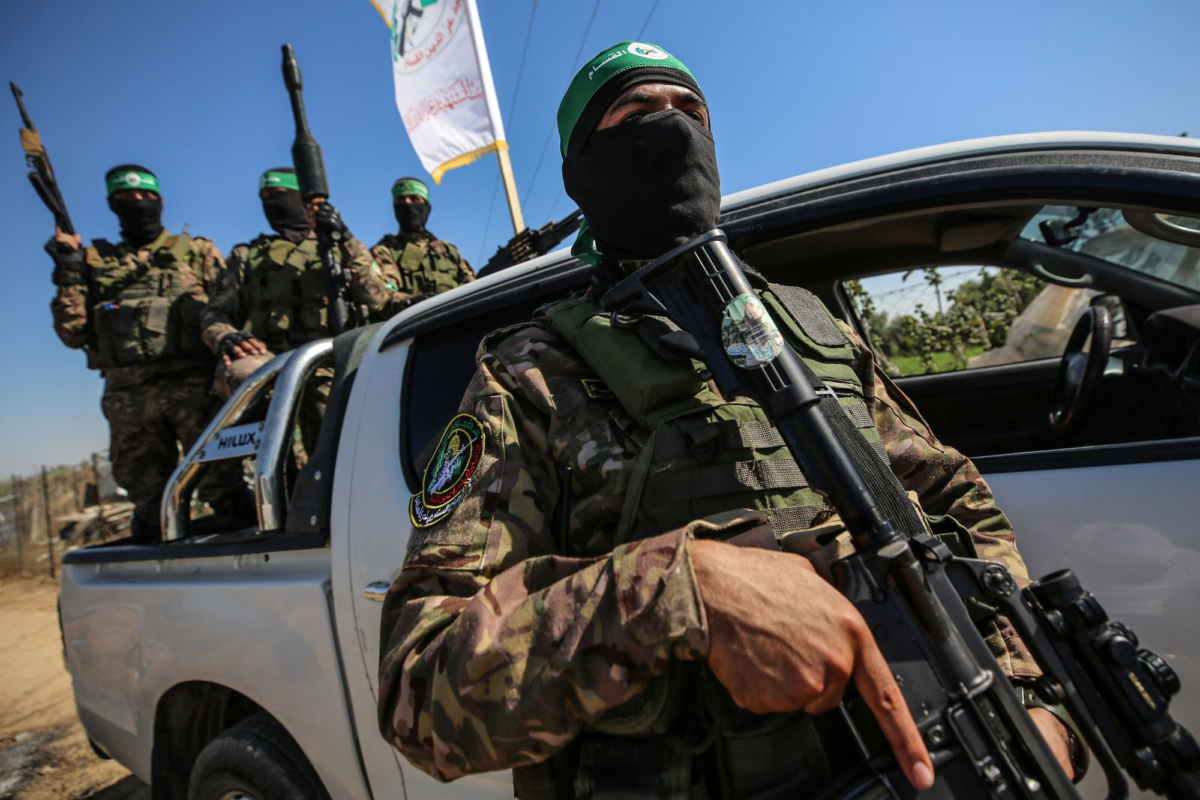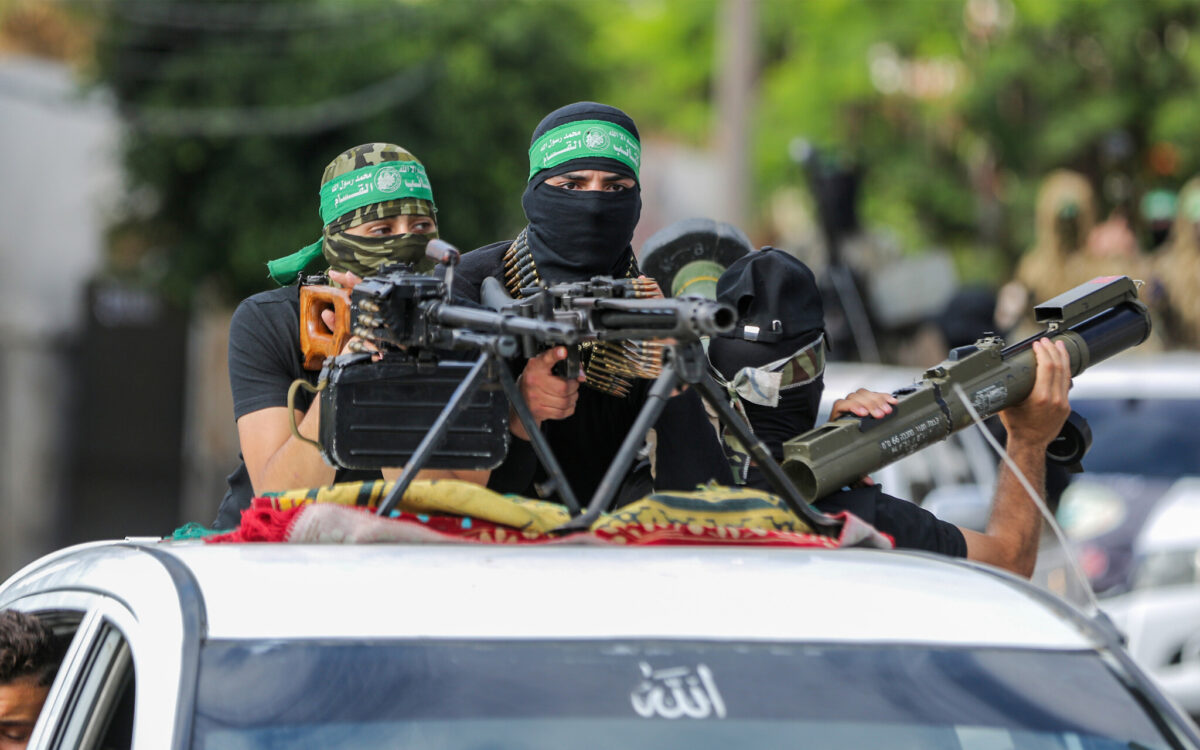Hamas, the Islamic Resistance Movement, has emerged as a deeply polarizing and destabilizing force in the Israeli-Palestinian conflict, marked by its relentless pursuit of violence and terrorism. From its inception, Hamas has propagated an extremist ideology rooted in the rejection of Israel’s right to exist, resorting to indiscriminate attacks on civilians and exploiting religious rhetoric to justify its reprehensible actions. This expansive critique delves into the formation, rise to power, tactics of violence and terrorism, devastating wars with Israel, oppressive rule in Gaza, and its international condemnation, highlighting the profound negative impact Hamas has had on the lives of Palestinians and Israelis alike.
Table of Contents

Formation and Ideology
Hamas traces its origins back to the late 1980s, emerging from the extremist factions of the Muslim Brotherhood with a radical Islamist agenda. Central to the organization’s ideology is the outright rejection of Israel’s legitimacy and the call for its destruction, rooted in religious fundamentalism and an uncompromising stance on the Israeli-Palestinian conflict. From its inception, Hamas has exploited religion as a tool to mobilize support for its violent campaign against Israel, promoting a toxic blend of religious fanaticism and political extremism.
Rise to Power
Hamas capitalized on the grievances of Palestinians, positioning itself as an alternative to existing political factions by providing social services and exploiting discontent with the perceived failures of mainstream Palestinian leadership. However, behind its facade of charitable work lies a ruthless organization driven by its own quest for power and dominance. The organization’s ascent to power in Gaza in 2007 was marked by violence and intimidation, culminating in a bloody coup that saw it seize control of the territory and impose its authoritarian rule.
Violence and Terrorism
Hamas’s primary tactic in its conflict with Israel has been the deliberate targeting of civilians through suicide bombings, rocket attacks, and other acts of terrorism. These cowardly attacks have inflicted untold suffering on innocent civilians, claiming the lives of men, women, and children indiscriminately. The terrorist group’s blatant disregard for the sanctity of human life is further underscored by its use of human shields and its cynical manipulation of religious ideology to justify its heinous actions.
Hamas’s War with Israel
Hamas’s wars with Israel have been characterized by intense violence, widespread devastation, and immense human suffering. Throughout these conflicts, Hamas has consistently employed tactics of indiscriminate rocket attacks targeting Israeli civilian population centers, demonstrating a blatant disregard for the principles of international humanitarian law. In response, Israel has conducted military operations aimed at degrading Hamas’s military capabilities and halting its attacks, often resulting in significant collateral damage and civilian casualties in Gaza.

The conflict in 2023, like previous wars, escalated rapidly as Hamas unleashed a barrage of rockets into Israeli territory, prompting a swift and forceful response from Israel. The ensuing violence spiraled out of control, resulting in a tragic loss of life on both sides and widespread destruction in Gaza. Despite numerous attempts by the international community to broker ceasefires and negotiate a peaceful resolution, Hamas’s intransigence and refusal to recognize Israel’s right to exist as a sovereign state have perpetuated the cycle of violence, leaving both Palestinians and Israelis trapped in a seemingly endless cycle of conflict and despair.
Subjugation and Oppression
Under Hamas’s rule, the people of Gaza have endured systematic repression, economic hardship, and human rights abuses. Hamas has stifled dissent, persecuted political opponents, and imposed draconian restrictions on freedom of speech and expression. Its authoritarian governance has created a climate of fear and intimidation, with dissent brutally suppressed and basic rights routinely violated.
International Condemnation
Hamas’s actions have rightly earned it condemnation from the international community, with numerous countries and organizations unequivocally denouncing it as a terrorist organization. Its flagrant violations of international law, including its targeting of civilians and its use of children as combatants, have sparked widespread outrage and condemnation. The international community’s condemnation of Hamas reflects the recognition of its role as a destabilizing force in the region, undermining efforts for peace and perpetuating the cycle of violence in the Israeli-Palestinian conflict.

Hamas’s legacy is one of death, destruction, and despair. Its extremist ideology, resort to violence and terrorism, brutal rule in Gaza, and international condemnation paint a damning picture of an organization that has inflicted immeasurable harm on the lives of Palestinians and Israelis alike. The cycle of violence perpetuated by Hamas not only undermines efforts for peace and stability in the region but also prolongs the suffering of innocent civilians caught in the crossfire.
As the Israeli-Palestinian conflict continues to simmer, it is imperative that the international community stands united in unequivocally rejecting Hamas’s toxic ideology and actions, holding it accountable for its crimes against humanity. Genuine efforts for peace and reconciliation must prioritize the principles of coexistence, mutual respect, and the recognition of the legitimate rights and aspirations of both Palestinians and Israelis. Only through dialogue, diplomacy, and a commitment to non-violence can the cycle of conflict be broken, paving the way for a future of peace, prosperity, and dignity for all.



